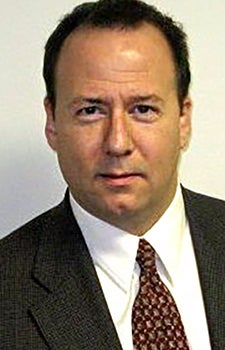
Q&A: ‘Boys will be Boys’ is a common response to the Kavanaugh situation. Why?
Over the past week, lawmakers and others have responded to an allegation that U.S. Supreme Court nominee Judge Brett Kavanaugh attempted to assault Christine Blasey Ford years ago when both were teenagers at a high school party. Some congressional members are outraged, and others say men should not be judged for incidents in their teen years because “boys will be boys.” Criminal psychologist and USC Dornsife lecturer Craig Lareau answers questions about the nuances of this response and the stakes.
Is the “boys will be boys” response a valid or fair argument?

Craig Lareau. Photo courtesy of Craig Lareau.
I am not saying that this is the case here, so I must first say that there are several factors to consider. But there is, in the criminal system, a group of juvenile offenders who are considered “adolescent-limited offenders,” who do not continue to offend as adults. As they get older, they no longer listen to their parents and they are no longer as respectful as they were as children. They engage in behaviors that demonstrate the poor judgment of adolescence.
Science has shown that developmentally, children around the age of 16 are able to think and reason like an adult, but their emotional brains and judgment don’t fully mature until age 25. And that’s why until college, and for some sometime after, teens or young men and women may do things that they regret because of poor judgment.
We don’t tend to see such a pattern in “life-course-persistent offenders,” in which they start out as problematic children, worsen as teens and then become hardened criminals as adults.
This does not give the adolescent-limited offenders a pass, though, for bad decisions and behavior. And I have to emphasize that there appears to be a toxic mix of factors to consider in the Kavanaugh situation.
Can you describe them?
One of the main contributors to poor decision making is peer behavior and peer judgment. If you rely on your peers to check your impulses, they may try to prevent you from making decisions that will get you into trouble or hurt others. But on the other hand, you might have peers who pull you into bad decisions like underage drinking. Alcohol impairs judgment.
That does not mean that adolescents who drink should get a pass.
Another factor is culture.
If one’s cultural view of women tends to be misogynistic and outdated, that can be a factor. In the case of Judge Kavanaugh, we are looking back 35 years or so. At that time, it was not uncommon for boys and men to think that girls who did want to engage in sexual activity would initially say “no” but didn’t really mean it. Fortunately, that belief structure has been abandoned in contemporary American society. “No means no” is something we are teaching our boys now.
Another factor is environment.
Kavanaugh went to a very elitist college prep school where a sense of entitlement and belief that rules don’t apply could have become another foundational factor that played into his behavior. I’m not saying that it did. However, his friend, [Mark] Judge, did write the book “Wasted,” in which he detailed incidents of getting black-out drunk with his buddies. It’s not unreasonable to believe that Kavanaugh and others of his ilk were routinely engaging in this behavior — being sexually assertive and aggressive when they were getting drunk.
Based on all of these factors — alcohol, peer encouragement, a sense of entitlement, an outdated cultural view about women and sex, and the poor judgment of adolescence — this incident in his teens is entirely credible.
What would help resolve the challenge of this nomination for everyone involved?
If he withdrew, he would not have all of this information on the record and he would reduce the risk of this affecting his standing on the District of Columbia Circuit. He risks the possibility of impeachment for his current position as a judge for that circuit, as I understand it.
Supreme Court nominees in today’s day and age need to have a clean record. Kavanaugh is at the precipice of a lifetime appointment to the U.S. Supreme Court, and that was impetus enough for [Christine Blasey] Ford to sacrifice herself for society because she believes that there are character flaws in this person.
She does not gain anything at all by doing this. Her life is irrevocably changed. She is now someone defined as a sexual assault victim instead of as the accomplished professor of psychology that she is. And she is defined by others who support that nomination as something horrible, vilified by the disparaging comments and terms that she now sees in her inbox and in the media. People who are trying to emotionally harm her may be ignorant about the effects of sex assault on a victim. And they may be ignorant of her sacrifice of risking herself, her family and her professional identity to stop his appointment.